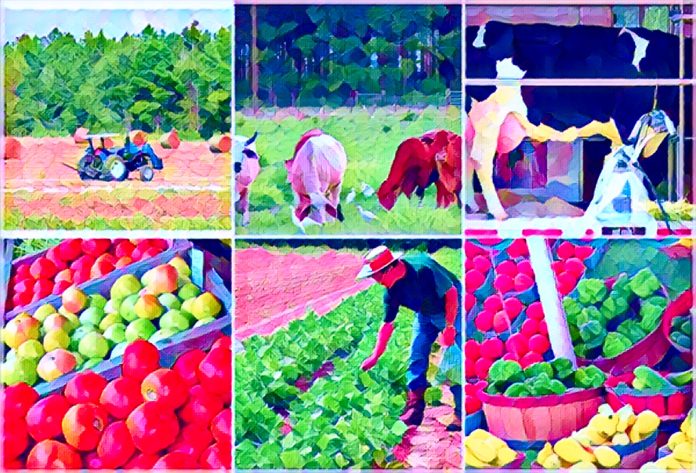KEY POINTS
- Agribusiness boosts efficiency and food production globally.
- Small farmers face challenges from agribusiness expansion.
- Environmental impacts push agribusiness toward sustainable practices.
Agriculture has come a long way in the past forty years. Once dominated by small, family-run farms, the landscape of farming is now shaped by large corporations and powerful conglomerates. This shift, known as the rise of agribusiness, has brought sweeping changes worldwide, from improving efficiency to creating jobs and fueling exports.
However, this transformation has also introduced environmental challenges and economic pressures on smallholder farmers. Understanding agribusiness is essential for appreciating its profound impact on the global economy and food systems.
The evolution of agribusiness
For centuries, agriculture was primarily local and family-run, centered on small plots where farmers grew crops to sustain their families and communities. But the mid-20th century brought a technological revolution that reshaped farming.
Mechanization allowed for larger-scale operations, and as agricultural technology advanced—with innovations like precision farming, genetically modified crops, and artificial intelligence—the industry moved toward corporate, industrialized systems. Today, global giants like Bayer, John Deere, and Cargill lead this transformation, adopting cutting-edge technology to lower costs and streamline production.
These corporations have also fostered consolidation and vertical integration in the sector. Through mergers and acquisitions, they have created vast conglomerates that control significant segments of the agricultural supply chain. This control extends from planting and harvesting to processing and distribution, strengthening agribusiness’s role in the economy and its influence on our food systems.
Economic contributions of agribusiness
Agribusiness has become a powerhouse in national and global economies. For instance, in 2021, agribusiness in the United States was valued at approximately $1.1 trillion, employing nearly 22 million people across roles ranging from traditional farm labor to modern positions in engineering, software development, and logistics.
This sector’s productivity supports not only domestic food needs but also robust export markets. Leading commodities like soybeans, corn, and beef are central to exports from the U.S., Brazil, and China, generating foreign revenue that strengthens these nations’ trade balances. Agribusiness, thus, plays a major role for countries looking to enhance their export standings and economic resilience.
Agribusiness and global food security
The rise of agribusiness has also been instrumental in addressing food security—a pressing issue as the global population grows. Large-scale farming techniques, such as monoculture cropping, enable maximum yields of essential crops like wheat, corn, and rice. This high productivity has been critical for keeping food supplies stable.
However, reliance on a few large corporations for much of our food production introduces risks to the food system. The COVID-19 pandemic highlighted these vulnerabilities when disruptions led to shortages and price increases. Additionally, focusing on a few staple crops limits crop diversity, which poses challenges for the resilience and adaptability of food systems.
Environmental implications of agribusiness
Despite its economic benefits, agribusiness faces scrutiny for its environmental impact. Large-scale farming contributes significantly to greenhouse gas emissions, deforestation, and soil degradation. For example, industrial livestock farming is a major source of methane, a potent greenhouse gas. Additionally, the high water demands of irrigation and extensive use of fertilizers strain water resources and contribute to pollution.
In response, some agribusinesses are now exploring sustainable practices. Regenerative agriculture, which focuses on restoring soil health and capturing carbon, is gaining traction as a way to offset the environmental footprint of large-scale farming. Growing consumer demand for environmentally conscious practices is also pushing companies to adopt greener methods. This shift suggests a growing awareness within agribusiness of the need for sustainable practices that balance economic goals with environmental stewardship.
Impact on small-scale farmers
While agribusiness has contributed to economic growth, it has also deepened inequalities within the agricultural sector. Large corporations often acquire land from smallholders, displacing local communities and leading to increased rural poverty. Small-scale farmers also struggle to compete with the efficiencies and market dominance of agribusiness giants. These large firms benefit from economies of scale, making it challenging for smaller producers to survive in a competitive marketplace.
In response, some regions have introduced policies like cooperative farming and fair-trade initiatives to support small farmers. These measures aim to give smaller producers better market access and fair pricing, helping them to remain viable players in the agricultural sector.
Future directions and policy implications
As agribusiness continues to evolve, policymakers worldwide are re-evaluating its role in relation to subsidies, tariffs, and environmental standards. In countries with substantial agribusiness sectors, there is a push to ensure that the industry’s growth does not come at the expense of sustainability or smallholder farmers. Emerging technologies, such as synthetic biology and advanced biotechnology, hold the potential to make food production even more efficient. However, balancing innovation with sustainability will be key to the future of agribusiness.
At an international level, organizations like the United Nations’ Food and Agriculture Organization (FAO) and the World Trade Organization (WTO) are promoting sustainable and equitable agricultural practices. Their goal is to foster an agribusiness sector that supports both global food security and economic stability.
The rise of agribusiness has reshaped agriculture, transforming it from a traditional, small-scale industry to a powerful, technologically advanced sector. While agribusiness has brought economic growth, job creation, and higher food production, it has also introduced environmental concerns and economic challenges for small-scale farmers. As we look to the future, balancing these impacts with sustainable practices and fair policies will be essential for building a resilient, equitable, and sustainable global food system.



